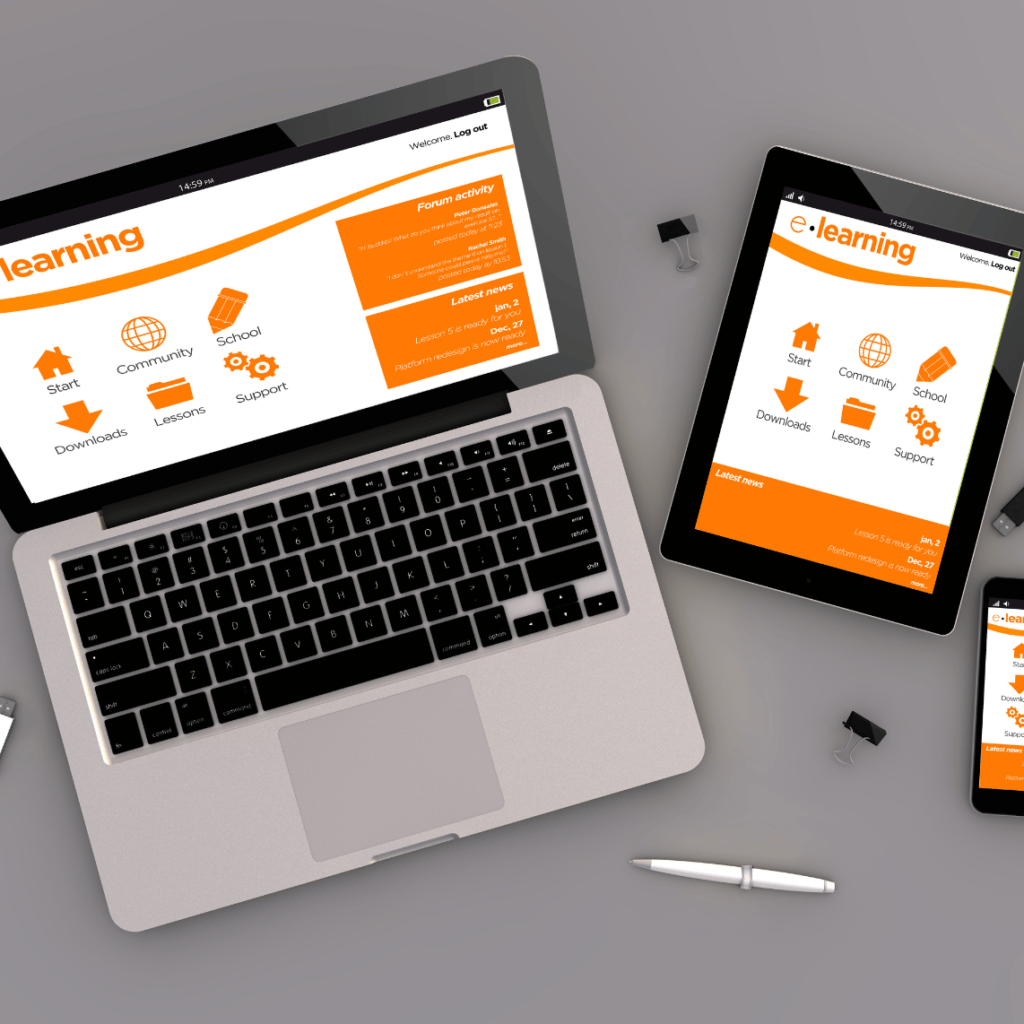Online Education
The evolution of online education has been a remarkable journey transforming the way we learn and engage with knowledge. Online education started back at a time when the concept of distance learning was primary conducted through corresponding courses which was delivered through mail.
Technology advancement have played a crucial role in shaping the landscape of online classes enhancing their interactivity and effectiveness. Deproliferation of high speed internet connectivity have been a fundamental growth to online classes. Faster internet speed enable seamless streaming of lecture and intractive multimedia content. Platform like zoom Microsoft team and Google meet have revolutionized online classes by enabling live virtual lectures discussion and collaboration. Advancement in multimedia content creation tools have increased online classes engaging and interactive learning material. Gamification technique introgate game elements such as point, batch, leaderboard and challenges into online classes to enhance engagement and motivation. These technology advancement have transformed online classes into dynamic and interactive learning environment offering many opportunities for learner to engage with course content and collaborate to achieve their educational goal.
The expansion of access to online education has been one of the most transformative aspects breaking down barriers to learning and reaching individuals who may have previously been unable to pursue traditional forms of education. Online education fosters geographical boundaries allowing learners to access high-quality educational resources from anywhere with an internet connection. Online education also offers flexibility in terms of scheduling allowing the working professional to pursue further education without having to disrupt their career. Online education also provides greater stability for individuals with disability allowing them to participate in learning activities without the physical barrier often encountered in traditional education system. Online education can be more affordable than traditional on-campus education as it eliminates expensive associated with commuting housing and campus facilities. Online education has also a global rich connecting learners from around the world with educational opportunities and resources. Online education offer alternative part ways to traditional academy crediential such as degree and certificates.
Customisation and flexibility are the two key pillars of online education offering learner the freedom to tailor their learning experience to their individual need ,preferences and schedule. Online education allow learner to progress through course material at their own pace. I like traditional classroom setting with fixed schedule online courses offer flexibility in terms of when and how quickly student complete assignment , watch lecture and engage with learning material. Online education eliminate the constraint of fixed class schedule allowing learners to study at times that are convenient for them. Online education offer variety of courses formats to suit different learning preferences and objective. This flexibility ensure that learners have option to engage with course content in way that work best for them. Online education promote excessibility for diverse learner including those with disability,learning difference or language barrier. Online education support continuous learning and skill development through out the life. With access to wide range of online forces workshop and resources learner can pursue their educational aspiration and can acquired new knowledge and skill easily. Ultimately online education impowers learner with autonomy and control over their learning journey’s by providing customisation and flexibility. Interactive multimedia content and quizzes enables learner to explore new topic in depth rainforest learning concept in track their progress at their own pace

Global collaboration in online classes has been increasingly prevalent promoting crosscultural exchange and collaborative learning experiences. Online classes provide virtual faces where students from all around the world can come together to learn and collaborate. Through video conferencing platforms like Zoom Microsoft Team and Google Meet instructors can conduct live lectures discussions and group activities enabling students to engage with course content and interact with each other in real time. Collaborative group projects in assignments are often integrated into online classes to promote teamwork communication and problem-solving skills. Students may be signed up for multicultural teams where they work together remotely to complete tasks and conduct research. Global collaboration in online classes exposes student to different cultures languages and perspectives in reaching their learning experience and expanding their world m virtual study groups provide an opportunity for students to collaborate outside of formal classes Students can form online study groups to review course material and discuss the challenging concept and prepare for the exam together. online classes often feature guest speaker and experts from around the world to contribute their knowledge and expertise to the learning experience. In these classes, Mein organized virtual cultural exchange events and activities to celebrate diversity and promote cross-cultural understanding. Global collaboration in online classes in the learnin experience is for steering cross-cultural communication collaboration and understanding through virtual networking events.
Online classes offer numerous opportunities for expanding access to education in fostering innovative learning experiences but they also prism several challenges as not all students have equal access to technology and reliable internet connection creating disparities in access to online classes. Online classes can feel isolating for some students lacking social interaction and a sense of community found in traditional classroom settings. Limited face-to-face interaction with pears and instructors may impact students’ motivation and engagement and also their sense of belonging in the environment. Online learning requires strong self-discipline and time management skills to stay organized motivated and contract with course work. The quality of online instruction can vary widely depending on factors such as instructor expertise and course design. Some online classes may lack interactive and engaging learning activities clear communication and effective feedback which diminishes the overall learning experience for students. Even with challenges, there come opportunities as online classes of greater accessibility to education for diverse populations including working adults individuals with disabilities and students in remote or underserved communities. Online learning removes barriers such as geographical distance physical disabilities and scheduling conflicts allowing more people to pursue higher education and lifelong learning opportunities. Online education provides flexibility in terms of scheduling and pacing allowing the student to balance their education with work, family, responsibilities and other commitments. Online classes encourage the use of innovative pedagogical approaches and digital technology to enhance teaching and learning. Despite the challenges, online classes offer numerous opportunities for expanding access to education posted in global collaboration and promoting innovative teaching and learning experiences.
The future outlook of online classes is shaved by ongoing advancement in technology evolving educational paradised and changing learners’ needs and preferences. The future of online classes is likely to involve hybrid learning models that combine online and face-to-face instruction. A hybrid model of flexibility and customization allows a student to engage with course content both online and in traditional classroom settings depending on their learning preferences and needs. Online classes will increasingly incorporate personalized learning experiences tailored to individual learner needs preferences and goals. Online classes will increasingly incorporate microlearning and bite-size content delivery formats catering to short attention and busy lifestyles. The future of online classes holds greater promise for expanding access to education for studying innovation in teaching and learning and empowering learners to achieve their educational aspirations and career goals in a rapidly evolving digital world.




